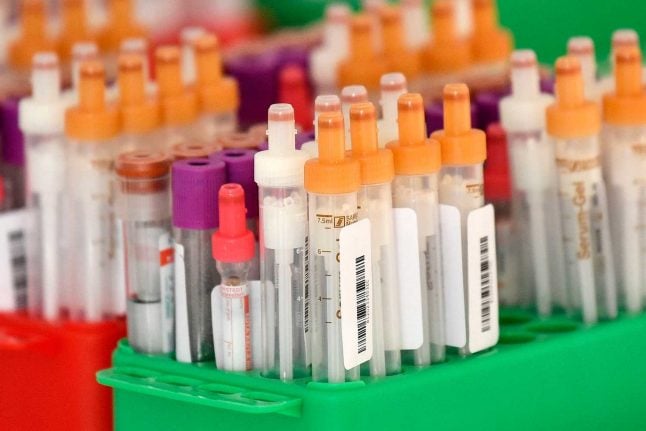Companies like Credit Suisse, Nestlé, Zurich, Roche and Helsana are making tests available for employees to see if they have contracted the coronavirus and have developed antibodies against it. Some have also made the tests available to the families of employees.
As reported in Swiss news outlet Watson, insurance companies have been the most willing to provide tests for their employees – even more so than the companies who actually manufacture the tests.
While the most popular tests are made by Swiss pharma company Roche, Watson reports that Credit Suisse and Zurich were the first to test their employees – using Roche tests.
While the antibody tests are made available to anyone who wants them, they are not being made compulsory.
A spokesperson for Swiss insurance giant Zurich told Watson that the tests were not a condition of employees returning to work.
READ: International interest grows in Switzerland's 'game-changing' coronavirus antibody test
Employees register their interest online for the tests, which are carried out on the company’s premises.
For the tests to work, the employee provides a small amount of blood and will receive the results from the laboratory in a few days.
All tests results are anonymous, meaning that the companies will not have access to information as to who has and hasn’t contracted the virus.

Would you take a coronavirus anti-body test at your workplace? Image: Simon Dawson / POOL / AFP
According to the companies, the tests are in high demand.
Olaf Schäfer, head of performance management at the health insurer Helsana, said the tests were put in place to satisfy employee curiosity.
“We see that the employees are insecure and have questions,” Schäfer told Watson. The company said it wanted to relieve its employees of the worry of thinking they had contracted the virus.
“We believe that employees work more relaxed, better and therefore more productively if they are certain”.
Do the tests work – and what do the results actually mean?
Despite the tests being popular among company employees, little is known about what the results actually mean.
Although Roche says the tests are ‘100 percent accurate’, experts argue that the true meaning of a ‘positive test’ is not well understood.
For instance, researchers have not yet determined whether antibodies protect against another infection with the virus, while it is also unclear as to whether someone with antibodies is contagious.
For this reason, several other large Swiss companies including Swisscom, Migros, Coop, Swiss Post and SBB have said they will not make the tests available to employees.
A spokesperson for Swiss Post, citing the BAG’s lack of a recommendation on the matter, said “If the BAG gave such a recommendation, we would implement it”.



 Please whitelist us to continue reading.
Please whitelist us to continue reading.
Member comments